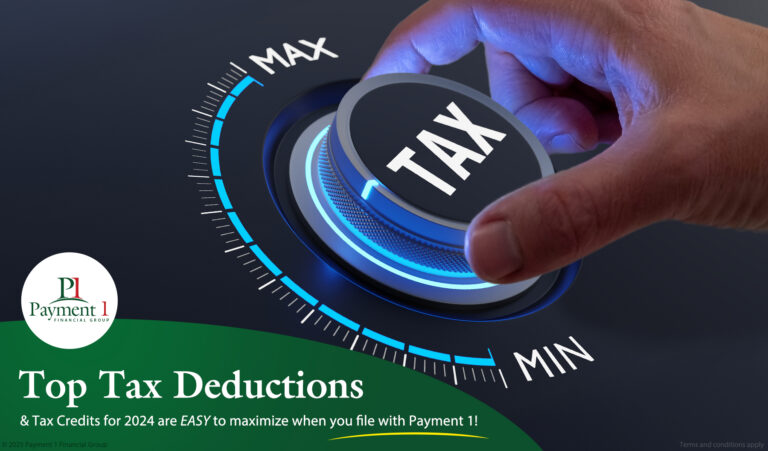Small But Effective Ways to Stick to a Budget

Creating a budget is one thing. Sticking to it is another, and it’s no easy task. However, doing it successfully is a great accomplishment and a victory. It gives you a sense of control over your finances. Sticking to a budget is crucial in reaching your financial goals because every goal requires planning. However, no matter how well you design your budget plan, you sometimes find yourself overspending or over-indulging on certain aspects. Don’t beat yourself up for it! Everybody does it every once in a while. What matters is you get back on track each time.
Why You Should Create A Budget And Stick To It
If you want to stay on top of your finances, creating a budget and sticking to it is the best way. Below are a few reasons why it’s all worth it.
It keeps you from overspending
A budget makes you look more closely at your expenses and income. As a result, it makes you more mindful of how to spend your money. For example, you don’t want to spend most of your paycheck on your credit card bills. A budget can help you manage your spending and give you more spending power in the future.
It helps you save
When you create a budget, you assign money to do things. And the money that is not given any task can go straight to your savings account. So it’s best to have a separate savings account, and even better if you set an automatic transfer to it each month.
It creates space for leisure
Some people may think budgeting takes away all the fun about having money. But, on the contrary, it actually ensures it. Having a budget for all your needs and sticking to that budget gives you room to spend on the “fun stuff.” In addition, being able to manage your money well gives you true financial freedom.
It puts you in charge
Sticking to a budget allows you to take control of your money rather than the other way around. It helps you control your spending, know where your money is going, and realize where to make adjustments. Finally, and most importantly, it puts you in charge of your financial future.
A Step-by-Step Guide To Creating A Budget
So, how do you get started? Here’s a step-by-step guide.
1. Know your net income
Your net income is the total monthly income minus taxes. In short, the money you take home each month. Remember all the possible deductions from your salary — retirement plan, insurance, etc. Many people overspend because they set the budget with their gross salary in mind. If you are a freelancer, always deduct the self-employment tax when creating a budget.
2. List all monthly expenses
List down all recurring expenses — fixed and variable. Fixed costs include utility bills, rent or mortgage payments, and loan payments. Variable expenses change monthly, including groceries, gas, and entertainment. Categorize your expenses for better tracking. You can use anything you are comfortable with when tracking expenses, whether it’s the good old pen and paper or an app on your mobile phone.
3. Set an average monthly cost for every item
It’s easier to do this with fixed expenses. You can look into your credit card statements for variable items and get the average amount you spent on a category in the last three months. Round up the amount. For example, you spend an average of $565 on groceries each month. You can put down $600 for easier tracking.
4. Check and compare, then make a plan
Now, compare the figures from each side — income and expenses. If you see that your expenses are greater than your monthly income, then it’s time to make a plan. Set realistic limits in certain areas and craft a plan on how to do it. For example, you want to cut down on subscriptions. You can start by listing down all platforms and applications you currently use and determine which ones to unsubscribe from. Even the most minor savings can add up and give you wiggle room in your budget.
5. Review your budget regularly
Things can change over time — you may get a raise or purchase a big ticket item that you’ll pay monthly. So go back to your budget once in a while and see if anything needs adjusting.
Most Common Expenses That Ruin Your Budget
Sometimes, we go over our budget in the smallest of ways. The small, seemingly harmless things we spend on cost us a lot when added at the end of each month. Here are a few examples.
Streaming Services
It’s frustrating that our favorite movies and shows can’t be streamed on one platform, making us subscribe to multiple streaming services simultaneously. Not to mention music-streaming apps! These monthly subscriptions pile up and can make a dent in the budget. So, take a step back and weed out services you may be comfortable canceling. Then, if you don’t miss it for a week, it’s good riddance.
Data Storage
Review your iCloud or Google drive subscriptions and see if you need them. Scan your stored files and see if there are items you can already let go of. These subscriptions may only cost a few dollars, but a room in the budget can be good for you, considering how fast the prices of everything go up these days.
Costly gifts
It’s great to live up to the rule “never show up empty-handed.” However, seasonal expenses such as gifts for birthdays, holidays, and weddings can also pile up. You don’t have to stop giving gifts altogether. What you can do is start being mindful of the cost of the gifts and set a realistic budget for every gift.
Pricey phone plans
Review your phone plan and data usage to see if you can opt for a cheaper one or apply for a family plan. Check if it’s also possible to negotiate to lower your plan’s cost, especially if you have been a long-time subscriber.
Dining out and takeouts
Preparing meals and cooking at home is always cheaper. Dining out and ordering takeouts may be very convenient. Still, you have to consider the delivery fee, taxes, and tip — these will double your expenses at the least.
Tips For Sticking To A Budget
The good news is it could also be that we can stick to our money plan in the smallest of ways. Here are a few tips for sticking to your budget and saving money:
Avoid grocery shopping hungry
It’s a given that you need to have a grocery list every time you go grocery shopping. However, grabbing a couple of unlisted snacks is always very tempting because we end up craving them when we see them on the shelves. So instead, try doing your shopping after a meal and see the difference.
Plan your meals
Even with eating, you need direction. Not planning your meals means eating out or ordering takeouts more. Before grocery shopping, plan your breakfasts, lunches, and dinners. List all the items you’d need for your planned meals and stick to your list. Make sure to prepare healthy meals so that your wallet and body are in tip-top shape.
Don’t bring your credit card around with you
Credit cards are good for well-thought-out purchases. However, the bill compounds very quickly if used for daily spending and splurges. People tend to spend more when using their credit cards because they don’t feel the financial burden until a few weeks after the billing statement comes. Stick to debit or cash for most of your purchases for easier tracking.
Shop at thrift stores
Sticking to a budget doesn’t mean you don’t get to buy new items for your wardrobe once in a while, but you can do so without breaking the bank. You may find great pieces at thrift stores at one-tenth of the price you’d get at malls.
Try to DIY some of your home supplies.
Cut down on household cleaners by using ingredients you have in the kitchen to make your own. Vinegar and baking soda solution is a good stain remover, for example. Lemons are good spot cleaners, too.
Track everything you buy
This will give you a glimpse of your spending behavior. Do it religiously for two weeks to get insight into the items you spend most on and your unnecessary expenses. This will help you adjust your spending habits for the better.
Be realistic
The closer your budget is to reality, the better you can stick to it. If your budget for the occasional dining out is $100 but ends up spending around $200 each month, why not make your budget $150 to give yourself a little elbow room?
Final Thoughts
Your financial future relies heavily on the money habits that you are forming today. Whether paying off all your debts or saving for a home downpayment, every financial goal is attainable with a good action plan. Sticking to a budget doesn’t need to be a headache if you consider it the most standard way to manage your finances. Make it part of your routine to track your expenses and make it a habit to sit down and review your budget and spending. After all, sticking to a budget is a significant step and an excellent way to honor your hard work.
Our expert team is here to help you sort through your financial questions and options. Contact us today and our staff will be happy to help!
Image by ijeab on Freepik




